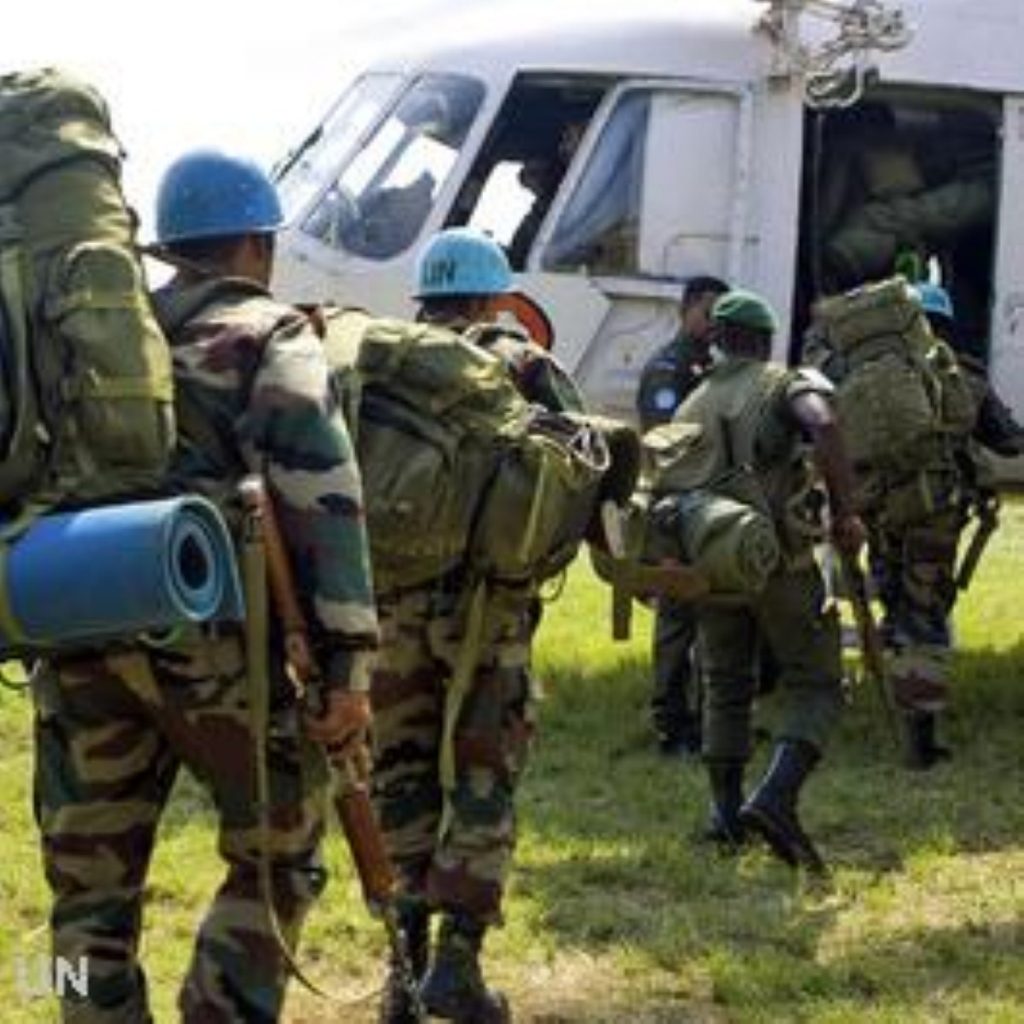Pressure on Britain to provide DR Congo troops
Britain’s refusal to deploy its battle group to DR Congo is letting down victims of violence in the African country, it has been claimed.
Gareth Evans of the International Crisis Group told an audience at the Institute for Public Policy Research thinktank in London he was disappointed by Britain’s stance on the problem.
Foreign secretary David Miliband led a diplomatic mission to the unstable African state last month. Since then over 250,000 people have been displaced as a result of fighting between government troops and rebels loyal to renegade general Laurent Nkunda.
The UN security council has authorised the deployment of an extra 3,000 troops on top of the 17,000 peacekeepers already in place in the country.


But these much-needed forces are not expected to be available for up to six months, leaving civilians struggling to cope as insecurity in eastern DRC’s unstable North Kivu province remains high.
Mr Evans, who used his speech to argue for the doctrine of ‘responsibility to protect’ (R2P), pointed out the European Union could use its two 1,500-strong battle groups to provide the reinforcements for this interim period.
Britain is responsible for one of the two battle groups until the end of the year.
“This is not good enough,” Mr Evans, a former Australian foreign minister, said.
“Britain is one of the countries strongest in pressing for R2P – one of my great allies.
“But you’ve got to follow through by putting the boots on the ground. There’s no better place than DRC right now.”
Both Britain and Germany, which is responsible for the other battle group until the end of the year, are thought to be reluctant to deploy troops to DRC.
Senior British military chiefs have made clear their concerns about the overstretched nature of the country’s armed forces because of commitments in Afghanistan and Iraq.
A further deployment in DRC, even one lasting only six months, would place serious strain on the Ministry of Defence.
The Foreign Office denied the UK was “blocking” an EU force and insisted the battle group is “not designed for this kind of operation”.
“The UK continues to believe that EU contributions would be more effective if made through the UN force already in DRC,” a spokesperson told inthenews.co.uk.
“The UK will play an active role in discussions in the EU aimed at ensuring that the most effective EU assistance reaches the peace keeping effort in Eastern DRC.
“We need to understand how any EU force would work with [UN forces] – as have seen in other theatres, parallel forces with different command structures often cause problems.”
Britain has already sent military officers to work with the UN peacekeeping force in the country and is now looking to supplement them with “specialist support in several areas”, the spokesperson added.












